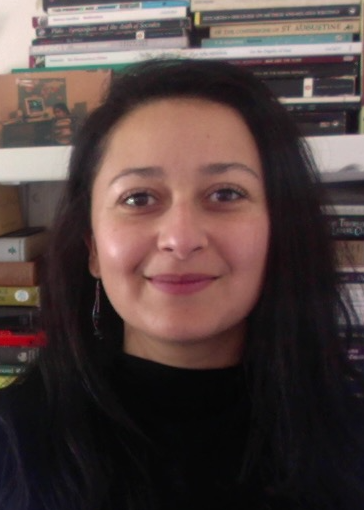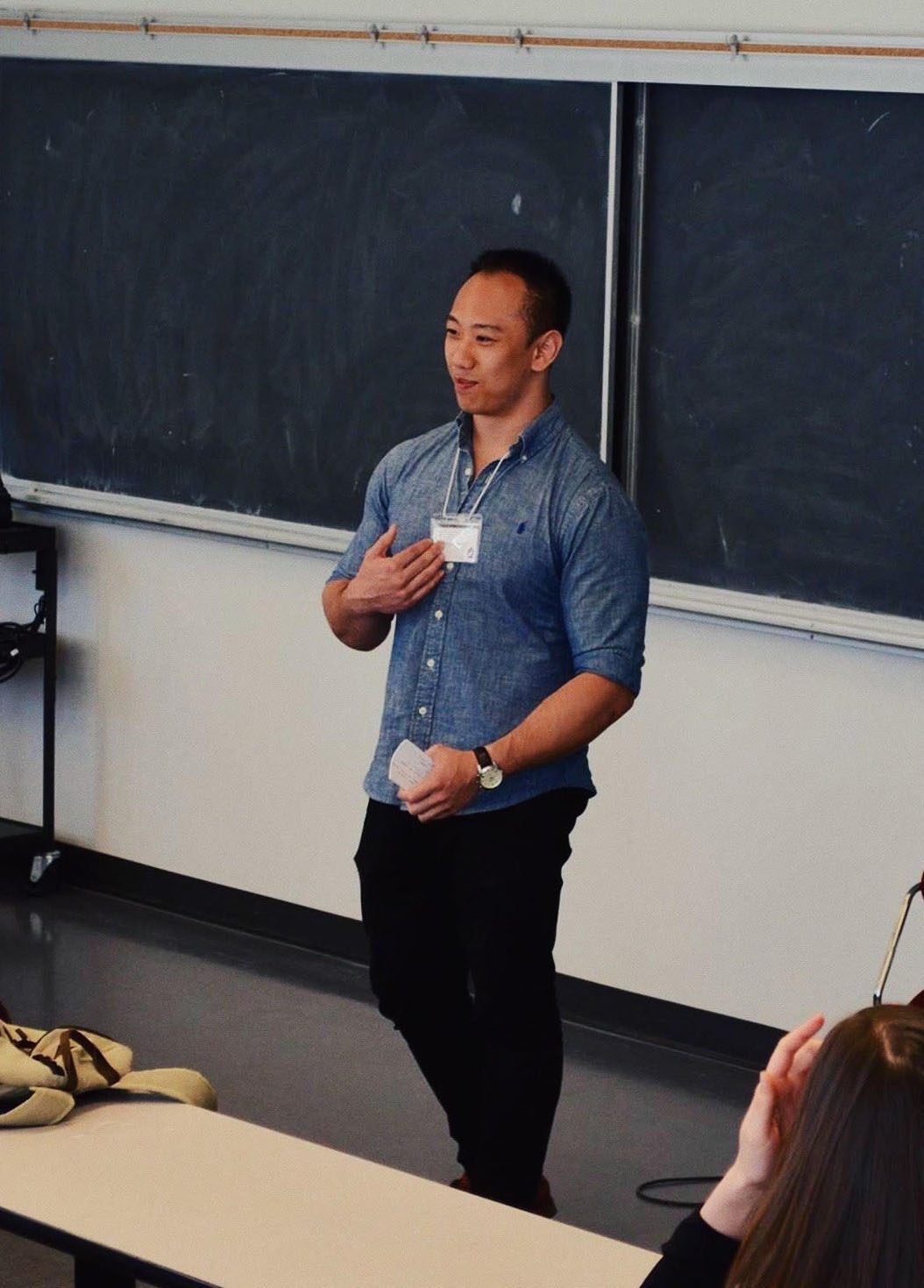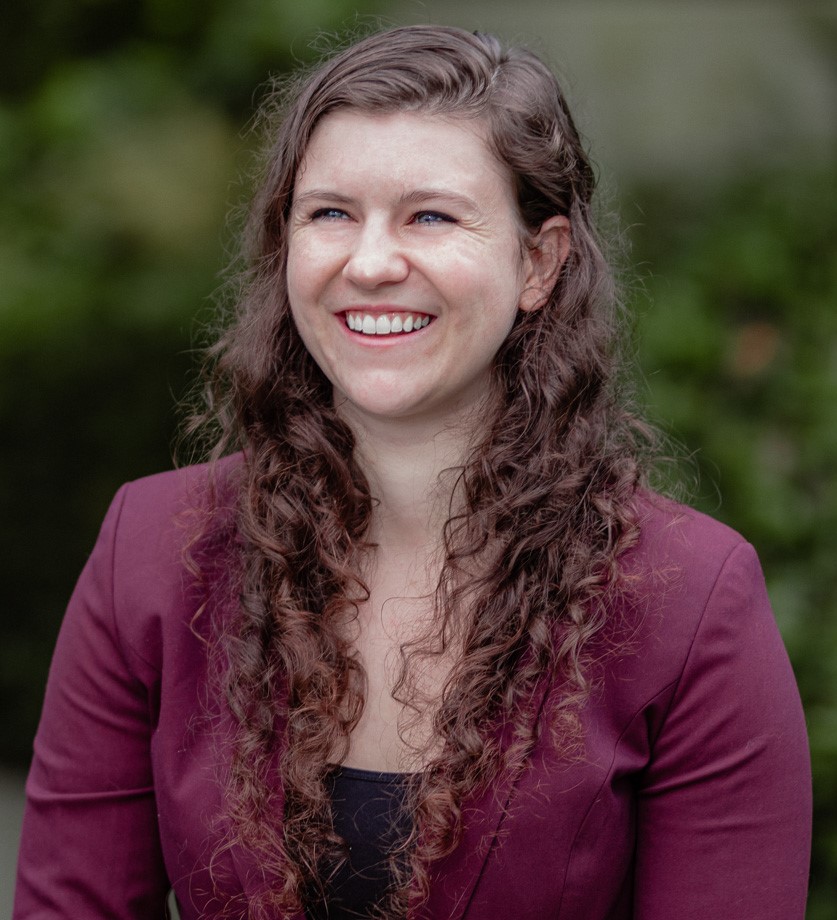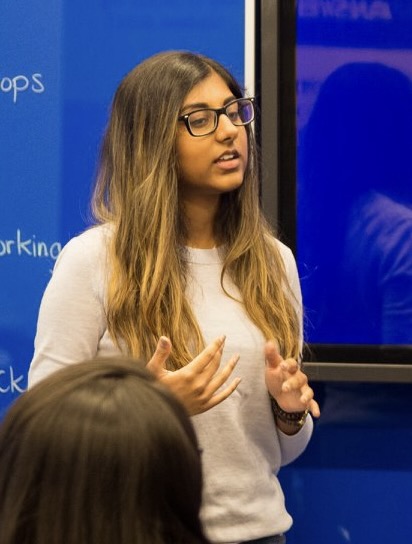Erica Chiaki Kawabe (Shimizu)
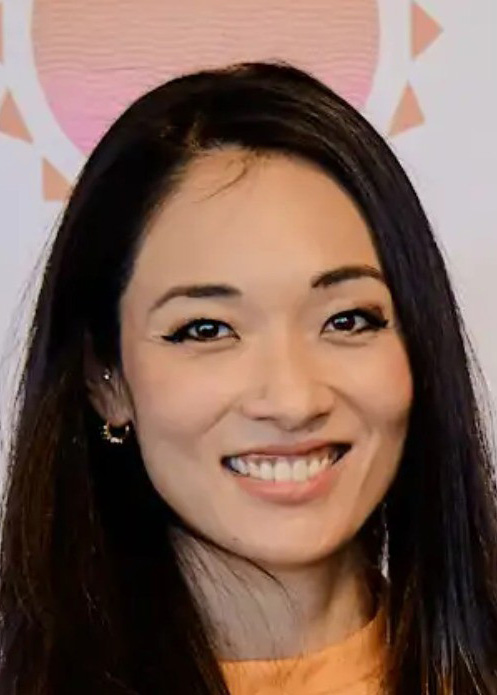
Why did you choose your program at UBC and what did you enjoy most about it?
I chose UBC’s Political Science program with a minor in International Relations because I was captivated by the beauty of the campus. Embracing the challenge of leaving my home country and moving to Canada alone was a risk I was eager to take. The allure of studying in such a stunning environment fueled my determination to apply.
As I delved deeper, I discovered the impressive roster of esteemed professors at UBC, which only solidified my decision. For me, this decision was not just about education, but also about growth, adventure, and seizing the opportunity to learn from the best in an inspiring setting.
What were some of your most meaningful experiences at UBC?
My most meaningful experience at UBC was forging friendships with international students. These connections transcended borders and cultures, enriching my life in ways I never imagined.
The friendships I made are the most cherished part of my UBC journey. They taught me the value of diversity, the beauty of different perspectives, and the strength found in unity. These bonds are not just memories, they are lifelong treasures that continue to inspire and shape me.
What choices did you make at UBC that contributed to your career success / journey?
I believe it wasn’t just the choices I made at UBC, but the people I surrounded myself with and my life in Vancouver that truly shaped who I am today. Facing change head-on by moving to Canada, making decisions I had never made before, and building a strong support system during my studies were pivotal experiences.
These challenges and connections have profoundly influenced my current role in managing projects and change. Today, I am able to empathize with and consider the experiences and emotions of those undergoing change, thanks to the invaluable lessons I learned from the incredible people at UBC.
What was your first job after graduation and what other jobs did you have before your current position?
After graduating from UBC, I pursued a master’s degree in International Relations at Waseda University in Tokyo, Japan. My goal was to delve deeper into my field and study the effects of societal stereotypes and pressures on women in Japanese society. This journey allowed me to explore important cultural dynamics and contribute to a greater understanding of these critical issues.
Following this experience, I wasn’t exactly sure what I wanted for my career, but I knew I wanted to continue connecting with people. I came upon the recruitment industry and fell in love with the impact it has on people’s lives and businesses.
Is your current career path as you originally intended? What challenges did you face in launching your career?
My career path wasn’t something I had originally planned. However, having a broad academic background allowed me to remain open to various opportunities. While my friends pursued options such as law school and diplomacy, I discovered that my true strengths and passions lay in connecting stories and people, and in my drive to help others.
In my career, I’ve faced several challenges that have shaped my professional journey:
- Navigating a new industry: Transitioning into the recruitment industry was initially challenging because it was unfamiliar territory. Learning the intricacies of the field and understanding the market dynamics required significant effort and adaptability.
- Building a network: Establishing a strong professional network from scratch was crucial but challenging. It involved a lot of outreach, relationship-building, and maintaining connections with diverse individuals and organizations.
- Managing expectations: Balancing the expectations of both clients and candidates can be demanding. Ensuring that both parties are satisfied and that their needs are met requires excellent communication and negotiation skills.
- Staying up to date: The recruitment industry is fast-paced and constantly evolving. Keeping up with the latest trends, technologies, and best practices is essential but can be overwhelming at times.
- Emotional resilience: Dealing with rejections and setbacks, whether it’s a candidate not getting a job or a client choosing another agency, requires emotional resilience. It’s important to stay positive and motivated despite these challenges.
- Cultural sensitivity: Working with people from diverse backgrounds means being culturally sensitive and understanding different perspectives. This can be challenging but is also incredibly rewarding.
These challenges have not only tested my skills and resilience but have also provided valuable learning experiences that continue to drive my growth and success in this field.
What do you like about your current job and what do you find challenging? How does it relate to your degree?
My realization that I am happy in my current job came shortly after I stumbled into the recruitment industry, a field I hadn’t known existed.
Understanding my purpose made this transition easier. For me, it’s about connecting with people, making a positive impact on their professional lives, and considering their feelings in today’s fast-paced market. This purpose guides me daily.
My background in international relations perfectly complements my role where I manage relationships between candidates and stakeholders at large companies. My international studies have helped me understand the nuances of different cultures and relationships. While I studied these dynamics in the political field, navigating the corporate world requires similar negotiation skills.
From your experience, what has been the value of having an Arts degree?
Having an undergraduate Arts degree from UBC has been incredibly valuable in my journey. Here’s how it uniquely shaped my experience:
- Broad knowledge base: My studies at UBC provided me with a well-rounded education, allowing me to explore various disciplines and gain a comprehensive understanding of societal issues, particularly the effects of stereotypes and pressures on women.
- Critical thinking and analysis: The diverse coursework honed my ability to think critically and analyze complex issues. These skills are crucial in my current role where I navigate the intricacies of recruitment and human relations.
- Cultural sensitivity: Studying in an international environment at UBC enhanced my cultural awareness and sensitivity. This experience has been invaluable in my career, enabling me to connect with people from diverse backgrounds and understand their unique perspectives.
- Professional versatility: The skills I gained are highly transferable. In my work at Hays, they allow me to effectively manage relationships between candidates and stakeholders, leveraging my understanding of global nuances.
- Networking and opportunities: The connections I made during my undergraduate program opened doors to numerous opportunities. Being able to engage with a network of professionals and academics enriched my career and provided a strong support system.
- Personal growth: Pursuing my Arts degree at UBC was a transformative experience. It taught me resilience, adaptability, and the importance of stepping out of my comfort zone. These qualities have been essential in my professional development.
Overall, my Arts degree not only equipped me with a broad knowledge base and essential skills but also fostered personal growth and a deeper understanding of the world, making me a more effective and empathetic professional.
What advice would you give to students and alumni interested in breaking into your industry?
To thrive in the corporate world, it’s essential to have an innate passion for people and a genuine desire to make a positive impact on their lives. This drive will fuel your efforts and keep you motivated. However, it’s equally important to recognize that corporate politics are an inevitable part of the landscape.
Navigating this environment requires a strategic approach and a willingness to engage in the “game” of internal and external relationships. Here are some key pieces of advice:
- Cultivate empathy: Understand and connect with the people you work with, whether they are colleagues, candidates, or clients. Empathy will help you build strong, trusting relationships.
- Stay adaptable: Be prepared to adjust your strategies and approaches as situations change. Flexibility is crucial in managing the dynamic nature of corporate environments.
- Develop political savviness: Learn to read the room and understand the underlying dynamics at play. This includes knowing when to assert yourself and when to step back.
- Build a strong network: Surround yourself with a supportive network of mentors, peers, and allies. These connections can provide guidance, support, and opportunities.
- Communicate effectively: Clear and effective communication is key to navigating relationships and ensuring that your intentions and goals are understood.
- Maintain integrity: While navigating corporate politics, always stay true to your values and principles. Integrity will earn you respect and trust in the long run.
By balancing your passion for people with a strategic understanding of corporate dynamics, you can successfully navigate your career and make a meaningful impact.
What advice would you give your graduating self?
Stay true to who you are and what you are passionate about.
Erica Chiaki Kawabe (Shimizu)



Why did you choose your program at UBC and what did you enjoy most about it?
I chose UBC’s Political Science program with a minor in International Relations because I was captivated by the beauty of the campus. Embracing the challenge of leaving my home country and moving to Canada alone was a risk I was eager to take. The allure of studying in such a stunning environment fueled my determination to apply.
As I delved deeper, I discovered the impressive roster of esteemed professors at UBC, which only solidified my decision. For me, this decision was not just about education, but also about growth, adventure, and seizing the opportunity to learn from the best in an inspiring setting.
What were some of your most meaningful experiences at UBC?
My most meaningful experience at UBC was forging friendships with international students. These connections transcended borders and cultures, enriching my life in ways I never imagined.
The friendships I made are the most cherished part of my UBC journey. They taught me the value of diversity, the beauty of different perspectives, and the strength found in unity. These bonds are not just memories, they are lifelong treasures that continue to inspire and shape me.
What choices did you make at UBC that contributed to your career success / journey?
I believe it wasn’t just the choices I made at UBC, but the people I surrounded myself with and my life in Vancouver that truly shaped who I am today. Facing change head-on by moving to Canada, making decisions I had never made before, and building a strong support system during my studies were pivotal experiences.
These challenges and connections have profoundly influenced my current role in managing projects and change. Today, I am able to empathize with and consider the experiences and emotions of those undergoing change, thanks to the invaluable lessons I learned from the incredible people at UBC.
What was your first job after graduation and what other jobs did you have before your current position?
After graduating from UBC, I pursued a master’s degree in International Relations at Waseda University in Tokyo, Japan. My goal was to delve deeper into my field and study the effects of societal stereotypes and pressures on women in Japanese society. This journey allowed me to explore important cultural dynamics and contribute to a greater understanding of these critical issues.
Following this experience, I wasn’t exactly sure what I wanted for my career, but I knew I wanted to continue connecting with people. I came upon the recruitment industry and fell in love with the impact it has on people’s lives and businesses.
Is your current career path as you originally intended? What challenges did you face in launching your career?
My career path wasn’t something I had originally planned. However, having a broad academic background allowed me to remain open to various opportunities. While my friends pursued options such as law school and diplomacy, I discovered that my true strengths and passions lay in connecting stories and people, and in my drive to help others.
In my career, I’ve faced several challenges that have shaped my professional journey:
- Navigating a new industry: Transitioning into the recruitment industry was initially challenging because it was unfamiliar territory. Learning the intricacies of the field and understanding the market dynamics required significant effort and adaptability.
- Building a network: Establishing a strong professional network from scratch was crucial but challenging. It involved a lot of outreach, relationship-building, and maintaining connections with diverse individuals and organizations.
- Managing expectations: Balancing the expectations of both clients and candidates can be demanding. Ensuring that both parties are satisfied and that their needs are met requires excellent communication and negotiation skills.
- Staying up to date: The recruitment industry is fast-paced and constantly evolving. Keeping up with the latest trends, technologies, and best practices is essential but can be overwhelming at times.
- Emotional resilience: Dealing with rejections and setbacks, whether it’s a candidate not getting a job or a client choosing another agency, requires emotional resilience. It’s important to stay positive and motivated despite these challenges.
- Cultural sensitivity: Working with people from diverse backgrounds means being culturally sensitive and understanding different perspectives. This can be challenging but is also incredibly rewarding.
These challenges have not only tested my skills and resilience but have also provided valuable learning experiences that continue to drive my growth and success in this field.
What do you like about your current job and what do you find challenging? How does it relate to your degree?
My realization that I am happy in my current job came shortly after I stumbled into the recruitment industry, a field I hadn’t known existed.
Understanding my purpose made this transition easier. For me, it’s about connecting with people, making a positive impact on their professional lives, and considering their feelings in today’s fast-paced market. This purpose guides me daily.
My background in international relations perfectly complements my role where I manage relationships between candidates and stakeholders at large companies. My international studies have helped me understand the nuances of different cultures and relationships. While I studied these dynamics in the political field, navigating the corporate world requires similar negotiation skills.
From your experience, what has been the value of having an Arts degree?
Having an undergraduate Arts degree from UBC has been incredibly valuable in my journey. Here’s how it uniquely shaped my experience:
- Broad knowledge base: My studies at UBC provided me with a well-rounded education, allowing me to explore various disciplines and gain a comprehensive understanding of societal issues, particularly the effects of stereotypes and pressures on women.
- Critical thinking and analysis: The diverse coursework honed my ability to think critically and analyze complex issues. These skills are crucial in my current role where I navigate the intricacies of recruitment and human relations.
- Cultural sensitivity: Studying in an international environment at UBC enhanced my cultural awareness and sensitivity. This experience has been invaluable in my career, enabling me to connect with people from diverse backgrounds and understand their unique perspectives.
- Professional versatility: The skills I gained are highly transferable. In my work at Hays, they allow me to effectively manage relationships between candidates and stakeholders, leveraging my understanding of global nuances.
- Networking and opportunities: The connections I made during my undergraduate program opened doors to numerous opportunities. Being able to engage with a network of professionals and academics enriched my career and provided a strong support system.
- Personal growth: Pursuing my Arts degree at UBC was a transformative experience. It taught me resilience, adaptability, and the importance of stepping out of my comfort zone. These qualities have been essential in my professional development.
Overall, my Arts degree not only equipped me with a broad knowledge base and essential skills but also fostered personal growth and a deeper understanding of the world, making me a more effective and empathetic professional.
What advice would you give to students and alumni interested in breaking into your industry?
To thrive in the corporate world, it’s essential to have an innate passion for people and a genuine desire to make a positive impact on their lives. This drive will fuel your efforts and keep you motivated. However, it’s equally important to recognize that corporate politics are an inevitable part of the landscape.
Navigating this environment requires a strategic approach and a willingness to engage in the “game” of internal and external relationships. Here are some key pieces of advice:
- Cultivate empathy: Understand and connect with the people you work with, whether they are colleagues, candidates, or clients. Empathy will help you build strong, trusting relationships.
- Stay adaptable: Be prepared to adjust your strategies and approaches as situations change. Flexibility is crucial in managing the dynamic nature of corporate environments.
- Develop political savviness: Learn to read the room and understand the underlying dynamics at play. This includes knowing when to assert yourself and when to step back.
- Build a strong network: Surround yourself with a supportive network of mentors, peers, and allies. These connections can provide guidance, support, and opportunities.
- Communicate effectively: Clear and effective communication is key to navigating relationships and ensuring that your intentions and goals are understood.
- Maintain integrity: While navigating corporate politics, always stay true to your values and principles. Integrity will earn you respect and trust in the long run.
By balancing your passion for people with a strategic understanding of corporate dynamics, you can successfully navigate your career and make a meaningful impact.
What advice would you give your graduating self?
Stay true to who you are and what you are passionate about.
